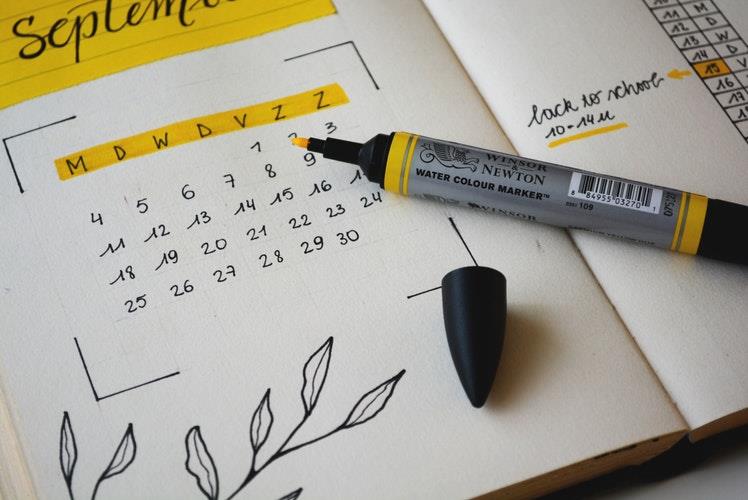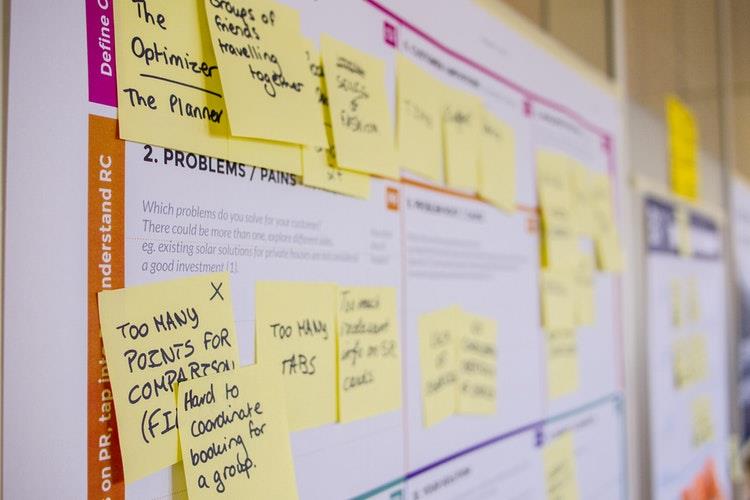- Blog
- Backtoschool
- How can I prepare for the new school ye...
How can I prepare for the new school year?
As with every new school year, all teachers face the same challenge: to prepare everything so that lessons do not descend into chaos. Regardless of what kind of teacher you are, whether you teach in a school or in private lessons, preparation is essential.
Teachers who work in a school or college may have a little more leeway for preparation as they usually know what the curriculum will be. A private tutor's curriculum is based on student demand.
All teachers need to be able to prepare and teach a syllabus. No matter what subject they teach and what level they teach at, they need to prepare certain things and then be able to adapt them as the course progresses.
How to prepare for the school year is something complicated for a private tutor, no matter what subject we teach, these tips apply to every subject.
How to prepare
There are certain things you must do in a more practical way. In September, all pupils are preparing to go back to school and you must not be less. School teachers prepare for several weeks, private tutors should do the same.
What to buy, where to advertise as a tutor, what subjects will I teach, all this and much more we have to consider.
- Buy what you need: It is time to buy all the teaching materials you will need during the course, such as diaries, notebooks and pens. However, there are also tutors who use the internet for their lessons. Check all the programmes you use and the virtual resources.
- Check your profile and ads on FindTutors: If you are looking for students, it is advisable to update your profile every year, reactivate your ads if you paused them during the holidays, and expand the content of each ad.
- Get in touch with your former students: A good tutor is interested in their students, even if they no longer have an academic relationship with them. It is important to keep in touch because you never know what this relationship can bring you.
- Set a schedule: Try to reserve the hours when you can teach, and even if you don't have students, try to do something productive during the day that will help your body adapt to the work schedule.
- Invest: Returning to work is the right time to invest in the things necessary to be more successful, such as new materials or some kind of special plan on a platform that will give you an advantage over other teachers.

Tips for preparing for the course
These are only guidelines and what you should design is only the outline of a path. Imagine an empty form that you will fill with a curriculum when you meet the student and they tell you their needs. Something that will be quick and efficient.
- Set an end goal: You need to be clear about what the purpose of your education should be. It depends on the type of tutor, some tutors want their students to succeed academically, others think it is more important that they learn the concept, others want to encourage their students to learn on their own. It depends on the vision each person has of education. It is important to be clear about this idea and think about it first, as this is the pillar on which we will build our curriculum.
- Set the objectives of the course: To do this, you need to be clear about what subjects you are teaching and at what levels. This is not a big task, you just need to make a list and assign each level several basic objectives that need to be fulfilled. For example, if you tutor guitar at a basic level, mark the chords your students should learn by the end of the course, or a set of songs they should be able to play.
- Allow time: there may be objectives that do not take a whole course to work on. Measure the topics per lesson, per week or per month.
- Prepare assessments: Even if you have to change them later, try to prepare them as general as possible. If you give lessons for reinforcement, they don't have to be similar to those in school, it is not a mock exam, you can prepare for it when the course starts. Focus now on how you will assess some concepts that you think are fundamental and when you will do this.
- Always have a plan B: Remember at every step you should always have an alternative in case it doesn't work, something that will prevent the class from being a blank slate or your whole strategy from collapsing.
Questions for your students
One of the first steps that can save your life when preparing a new course is to ask your students in the first class. That's why some people recommend giving the first class for free or at least making a first contact before you start.
- What worries them most about the new course? It is important to get to know the student's worries in order to know what their biggest fears are. Especially with academic problems, try to go beyond the fear of failure and find out what worries them at the core.
- What are they looking forward to in the new academic year? Just as you need to know their fears, you also need to know what they are looking forward to and looking forward to. This way you can motivate and inspire them.
- How would they like to learn? Try to give them a say in the teaching methods. Even if you decide it yourself, try to find out what they would do in your place to make teaching easier and more accessible.
- What technology would you use? You may be surprised to find that your students know a lot about technology that can be used in the classroom. Try to trust them in this respect.
 Benefits of planning
Benefits of planning
How to prepare a lesson is key if you want to have a great advantage and get much more out of the course. If you have a plan, you are always one step ahead and therefore have much more leeway.
- Teaching becomes clearer: there are lessons that become a jumble of content that makes no sense and is difficult for the student to interpret. Planning gives us a view from a distance, we look at the curriculum from above, and if you are clear about it, the student will be clear about it too.
- They will be able to assess: Only if you plan some objectives beforehand will you be able to assess. If you set guidelines from the beginning, you will be able to know whether you have achieved them or not. If you don't, the evaluation will be very poor and perhaps unfair.
- You can adapt better: Although it may sound contradictory, planning allows you to be better at improvisation because if you set boundaries, you know how far you can and cannot go. Only if you know all the ways you can go, will you know which one suits you best.
Tutoring is a big challenge, it is complicated and there is a lot of procrastination. For those who are beginners, it can be dangerous to jump into the void without thinking, so whatever you plan and however you plan it, the most important thing is that you have done a lot of work in advance and the beginnings will be much better.

